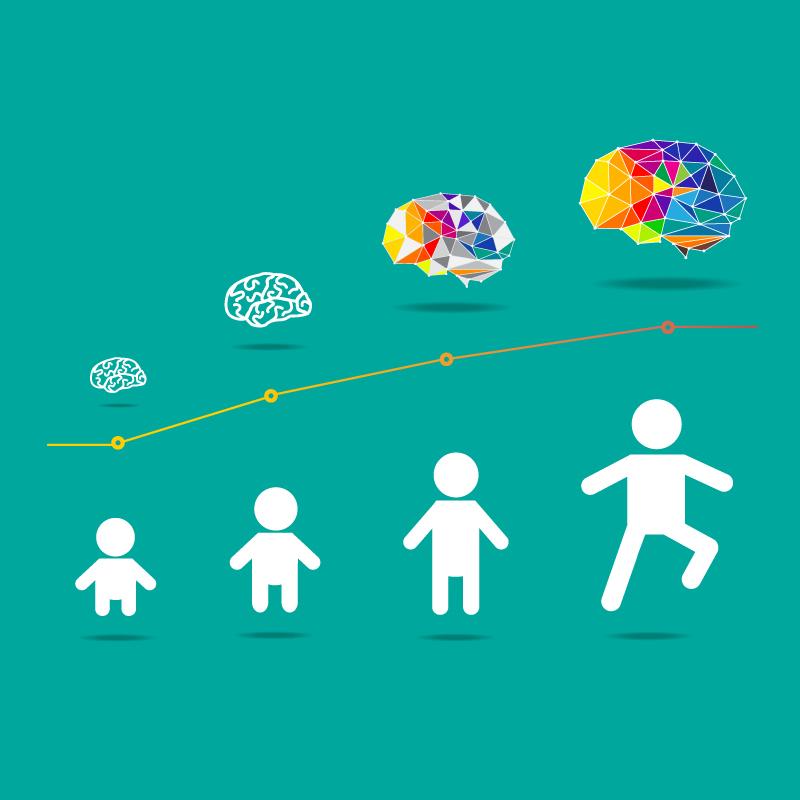Many experts warn about the dangers of using a cell phone while breastfeeding. But is it realistic to keep your phone away every time you nurse your baby?
Besides being a natural way for mothers to provide their babies with the nutrients they need, breastfeeding is also a time for a mother to bond with her child.
This bonding later translates to better social and emotional intelligence in children as they grow up.
So, logically it makes sense to stay away from your cell phone while breastfeeding, right? And if you can do that, it’s great.
However, for many women, this just becomes an unrealistic tip they can appreciate but not follow.
The Ground Reality
In this fast-paced modern age, there isn’t a day that goes by where you won’t get pulled in multiple directions. Multi-tasking has become the new normal.
But somewhere in this busyness of trying to handle everything, a new mother could lose out on some critical aspects of her relationship with the baby – like bonding with the newborn, caring for them, letting them feel her presence, and so on.

Even though many research studies stress the importance of a mother’s emotional presence while breastfeeding, it’s easier said than done for many women. The same applies to bottle feeding. Being present is ideal, but not always possible.
It’s important to realize that nursing a baby is almost like a full-time job.
Newborn babies need to be fed, on average, 8 to 12 times in a 24-hour period. And since each breastfeeding session can take anywhere from 15 to 45 minutes, you’re looking at 6-9 hours of breastfeeding your baby.
And it wouldn’t be very realistic to ask a mother to stay away from her phone for those 6-9 hours, especially if she’s balancing motherhood with working from home.
So, what’s the solution?
To create a balance – so you can provide your infant with the utmost care while still being able to use technology when needed.
Importance of Mother-Child Bonding
As mentioned above, feeding is an important time for bonding, and device use can potentially get in the way of that process. So, before we move further and look at ways to balance your infant’s care and your personal or professional life, let’s first take a quick look at what science says about the importance of mother-child bonding.
Emotional Development
“The mother-child relationship is central to the development of children’s emotions and their regulation,” says a research study published in the journal Current Opinions in Psychology. “Development progresses from infancy through childhood from a dependence on caregivers to co-regulate emotions towards the ability to self-regulate.”

Positive emotional development influences a child’s self-confidence, empathy, ability to create meaningful and lasting friendships and partnerships, and value of people around them.
And this development begins in infancy. The more emotionally present a mother is in a child’s life, the more their emotional intelligence grows.
Social Development
Babies need socialization early on, say experts. Things like skin-to-skin contact, feeding the baby (including breastfeeding), and parent-child interactions prepare your infant to become a part of a community later in life.
A baby’s first social connection is with its mother. Besides that, the baby socializes with the father, siblings, and caregivers, exposing the baby to social life.
These early social experiences help them in almost all aspects of their life as a grownup – be it relationships, communication, self-esteem, or confidence.
Brain Growth
A mother-infant bond is also crucial for the baby’s brain growth. “Bonding with your baby is important. It helps to release hormones and chemicals in the brain that encourage rapid brain growth,” says a research study from Australia.

“Bonding also promotes the development of connections between brain cells that are critical for learning; the growth of your baby’s body; and the positive development of your baby’s sense of who they are and how they deal with feeling upset.”
Reasons to Stay Away from Cell Phone While Breastfeeding
So, as you see, bonding with your child is crucial for their overall growth. And feeding time is when you can make this bond stronger, whether you’re bottle feeding or breastfeeding.
And although research on the effects of cell phone use while breastfeeding is still in its infancy, studies so far do show that cell phones hamper the mother’s ability to respond to and notice changes in the baby.
For example, this study from Japan says that “although smartphone use clearly increased distracted feeding times, we found no significant associations between maternal smartphone use and the quality of mother-infant interactions or bonding during breastfeeding.”
It continues: “However, smartphone use during breastfeeding was found to interfere with the mother’s ability to respond visually to the infant’s bid for her attention.”
It Can Cause Your Baby to Struggle for Attention
Experts say that when you’re distracted with your phone while breastfeeding, the baby can feel the shift in your attention and can even try to get it back by doing things like babbling and pulling your face towards them.
There was a study in 1975 called the still face experiment. It showed that children, even very young ones, can notice if their parents have blank expressions.
This caused the subjects to lash out to get their parents’ attention. And because of this, the stress hormones in the babies went up.
They continued the experiment after a few weeks, and when the parents did the still face, the babies started to panic and cry.
When you use your phone, you don’t exhibit many non-verbal cues aside from what you’re feeling about the content on your phone.
It’s possible that this could cause the baby to feel unconsciously unwanted, resulting in the unexpected rise of their cortisol hormones.
It Diverts Your Attention
Cell phones are distracting. So, it’s no surprise that studies show that mothers who use their cell phones while breastfeeding or bottle feeding are distracted enough to not notice the subtle changes in the baby.
This study consisted of 75 new mothers with babies younger than 6 months old. They were told to feed their babies as they normally did and found that the mothers were distracted during 52% of the bottle-feeding time. And unsurprisingly, almost 1/3 of these feedings involved technological distractors.

The researchers concluded their study by saying, “Mothers reported a wide variety of distractions during both breast- and bottle-feeding; higher levels of distraction were associated with characteristics of both mothers and infants. Further research is needed to understand whether and how maternal distraction impacts feeding outcomes.”
Besides being distracted enough not to notice subtle changes in the baby, research studies have also pointed out that “brexting” or using a cell phone while breastfeeding can lead to overfeeding.
And it’s thought that around 20% of adult obesity is caused by overfeeding babies.
It Can Make You Fail to Track Nursing Patterns
A mother needs to keep track of certain patterns their babies have when they breastfeed. This ensures that your little one gets the optimal quantity of milk you can give.
Paying attention can help you catch slight changes, like if the baby is struggling with suction or if their position isn’t comfortable.
Experts say that using a cell phone while breastfeeding can cause these things to go unnoticed.
It Can Hamper Your Child’s Safety
A research study from Japan says it takes longer for mothers to notice changes in their babies while operating smartphones. This delay in noticing can hamper the infant’s safety.
Food allergies are a great example of this. Statistics say that as many as 8% of all children — and about 6% of children younger than 2 years old — suffer from food allergies.
The protein from a mother’s food can pass through the breast milk. And if the baby is allergic to that protein, it can induce allergy symptoms in the baby.
In some cases, the allergic reactions are not extremely apparent. So, if a mother is distracted by her phone, she may not notice the changes in her baby at the early stages of an allergic reaction.
Choking is another good example of how distracted breastfeeding can have negative consequences for the child.
A baby can choke during breastfeeding if the milk comes out faster than the baby can swallow. Usually, this happens when the mother has an oversupply of milk. While this is usually not harmful, it is uncomfortable for the baby, and distracted breastfeeding can delay the mother from reacting.
It’s a Full-Time Job
So, as you see, the risk of using your cell phone while breastfeeding or bottle feeding is significant. But, as I already mentioned, nursing a baby is a big commitment. So, completely giving up your cell phone, or any other gadget for that matter, isn’t realistic for everyone.
So, what can you do? How do you maintain that balance?
Know That It’s Not Your Fault
Taking care of your newborn is a time-consuming task. So, if you aren’t able to spend all the time bonding with your baby or going tech-free, don’t blame yourself.
This post so far includes what science says. But it doesn’t mean you can’t find a balance between your life and caring for your infant.
So, even if you can’t pay attention 100% of the time, know that it’s not your fault. It’s just how it is.
With that said, let’s look at some ways you can maintain that balance.
Use Your Devices Only When You Have to While Nursing
Sometimes you have no choice but to use your phone. Maybe for work, answering a call, addressing an important text, and so on. And you don’t necessarily need to put a stop to that.
But it’s wise to reduce unnecessary cell phone use, at least while nursing your baby.
This includes doing things like mindlessly scrolling your social media feed, binging videos, and doomscrolling.
Audit Your Phone Use
Following on from that, you can start this process by taking a few moments to audit your phone use.
Simply look at how and when you use your phone and which apps are taking up the most amount of time. Identify which parts of your phone use are necessary or positive, and which are unnecessary or negative.

Doing this can help you identify the areas where you can cut down your phone use and help you set screen time limits. For example, if you identified that you’re spending a lot of unnecessary time on Facebook or TikTok while nursing, you can use your phone’s inbuilt app limits to set a maximum time you can use that app for. This is a great way to break the pattern and remind you to stop scrolling.
Use Some of The Feeding Time to Bond with Your Baby
Even if you’re occupied with work, calls, or texts, do aim to use some of the feeding time to bond with your baby. This includes smiling, making eye contact, singing, reading, cuddling, and talking to the baby.
Don’t Use Bright Screens When You’re Nursing
Particularly avoid bright screens when you’re nursing your baby to sleep, as the light might distract or interfere with their ability to sleep.
Devices with LED screens emit something called blue light, which reduces melatonin production in the brain, causing sleep problems.
If you have to use your phone while nursing, do these two things:
- Lower your screen brightness
- And turn on the in-built blue light filter on your phone.
Do Not Distract Your Baby with a Phone
This tip is slightly unrelated to this post, but I felt like including it as it’s really important — do not distract your baby with a phone when you need free time.
If your child is less than 1 year of age, the World Health Organization recommends no screen time.
This is because screens induce sedentary behavior, and it’s not good for your infant.
Besides that, the overstimulation screen-based gadgets cause in their brain isn’t really good.
So, if you need to distract them, you can get them safe offline toys (preferably with a STEM touch).
Final Thoughts
While modern technology brings many problems, we can’t ignore that it’s also what makes our lives as comfortable as they are.
The solution to reducing technology’s effect on your life isn’t to get rid of it and go off the grid. It’s to create a healthier balance with it.
The Healthier Tech Podcast features experts from different industries sharing tips on how to create that balance and live safer, healthier lives alongside technology. We’re available on all major platforms. So, give it a listen.








